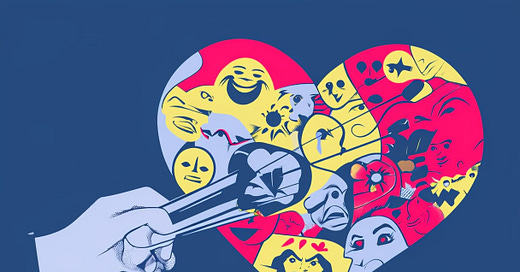Problems are meant to be solved. The project at work? Let’s think through it. The budgeting issue at home? Let’s open Excel and crunch some numbers. There’s something addictive about the rush we get from a solution, and because our brains love a good rush of dopamine, we apply those same practices to other areas of our lives. That’s where the trouble begins.
Thoughts are understood as the result of electrical impulses in our brains. That’s why ideas are often depicted as a light bulb, the “light coming on” as a result of catalyzing electricity in our heads. We think, we get an idea, we act. Your brain sees the world as a series of problems to be solved, as problems that have a definite solution, if only we dedicate enough brain power to the issue.
Grief is not an equation. Grief is an experience. It does not have a single, definite destination; it is winding and complicated. It shows up in the most inconvenient places at the most inconvenient times.
Wouldn’t it be nice if you could carve out some time on Tuesdays from 7-8pm to take your grief off the shelf, spend time with it, and then put it away until next week, like a book or your favorite television show? If grief obeyed the laws of math and physics, you could. But you cannot. As a result, so many of us get stuck in that paradigm of trying to problem-solve what has no answer.
We know what powers our thoughts, but what drives our feelings? Where do our emotions come from? Thoughts are electric, but magnetic signals within ourselves provide the basis for what you and I feel.
Your heart produces a magnetic field up to 5,000 times more powerful than your mind. That same energy produced by your heart can be measured by an electrocardiogram up to three feet away. Think about your favorite people: were you drawn to them simply because of the way they think, or did you find yourself drawn to the people whose magnetic hearts drew yours?
Our emotions and feelings do affect our heart’s magnetism. Those who report more hopeful emotions produce a stronger electromagnetic field than those mired in those emotions many of us would consider negative (anger, sadness, regret). I don’t necessarily believe in ascribing a moral character or virtue to emotions (for example, many people think anger is bad, but anger can also be informative, telling us when someone has crossed a line and we need to stand up for ourselves), but there are empirically positive qualities about a person who notices and understands what they are feeling, and works to enhance what it is they are feeling.
Because sometimes our brains lie to us.
Our brain convinces us that no one wants to hear about what we’re going through. Our brain blitzes us and comes up with wildly creative ways to paralyze our feelings and kneecap our willingness to wholly embrace our grief.
What are you relying on as you explore and navigate your own grief process? Books are great, but books don’t necessarily invite your heart into the conversation. Podcasts are great, but it’s just you and a person who has no idea you exist. We cannot mistake the consumption of a disembodied voice with the sacred work of listening to your inner self. The temptation to listen to voices other than your own is yet another brain response to a heart experience. The adventure of grief slowly reveals itself as you do the courageous work of sharing your feelings and removing whatever is disrupting your own magnetism. As Mary Lou Kownacki famously wrote, “There isn’t anyone you couldn’t love once you’ve heard their story.”
Your story, your grief, is what makes you magnetic. Understand it, embrace it, and let the world be drawn to your scarred heart that continues to beat strong. I’d love to hear your story. I bet it’s really good.





